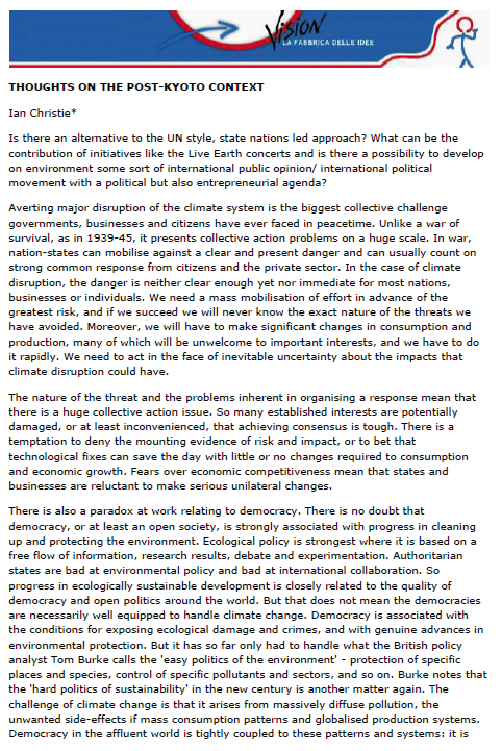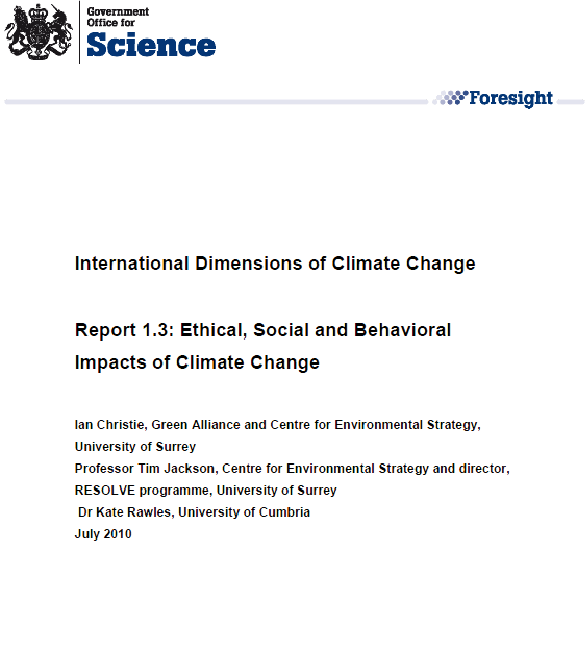Dear Aubrey
I am happy to endorse your statement to the UN.
Best of luck and all good wishes
Ian
Ian Christie
University of Surrey, Guildford, UK:
Research Fellow, Centre for Environmental Strategy
Associate, Green Alliance, London, UK; Fellow, WWF-UK
Alliance of Religions and Conservation;
The Futures Company;
Forum for the Future;
Theos"If these emergent initiatives can grow in influence and reach, and provide experiments in (for example) contraction and convergence, or in use of tradable carbon allowances, then they too can put pressure on national governments to show real leadership, and they will also send signals to business about the rise of markets for low-carbon living services and products. Kyoto and its successor are necessary but by no means sufficient, and need to be complemented by what is now emerging - a vast set of local, regional and trans-national initiatives for emissions reduction and low-carbon living. We need clear and neat international frameworks for emission targets, contraction and convergence and carbon counting, for sure; but we also need the messy, experimental Great Improvisation that is beginning in business and civil society. Can these be brought together?"
Thoughts on Post Kyoto
Ian Christie
Context Analysis - Ethics and international climate policy
The recent UN conference on climate policy at Copenhagen highlighted fundamental problems in the framing of climate policy debates and in the integration of ethical, social and behavioural factors in the development of policy:
- Explicit normative framings of the issues at stake were presented by various groups - such as the alliance of small island states, and the numerous NGO campaigners meeting alongside the Conference of the Parties. These positions emphasised arguments that assign ethical responsibility primarily to the industrialised countries to take urgent action for mitigation, assistance in adaptation to developing countries, and so on;
- The Kyoto framework assumes and includes an ethical stance in which primary responsibility for emissions reduction falls on the industrialised countries, via the policy of common but ‘differentiated’ responsibilities among nations;
- Alternative frameworks proposed for mitigation - such as Contraction and Convergence (Meyer, 2000) - also represent distinctive ethical stances, emphasising the need for and right to increased energy use for development for the poor world, with attendant demands for change in industrial world consumption patterns as a matter of perceived social and ecological justice;
- The complex ethical dimensions of climate change mitigation and adaptation, in particular those relating to contested ideas of justice and responsibility, were not highlighted in the Copenhagen conference’s final outputs. Nevertheless, positions that are unarguably ethical in the neutral descriptive sense - and often problematic – were present throughout the negotiation in multiple contexts;



